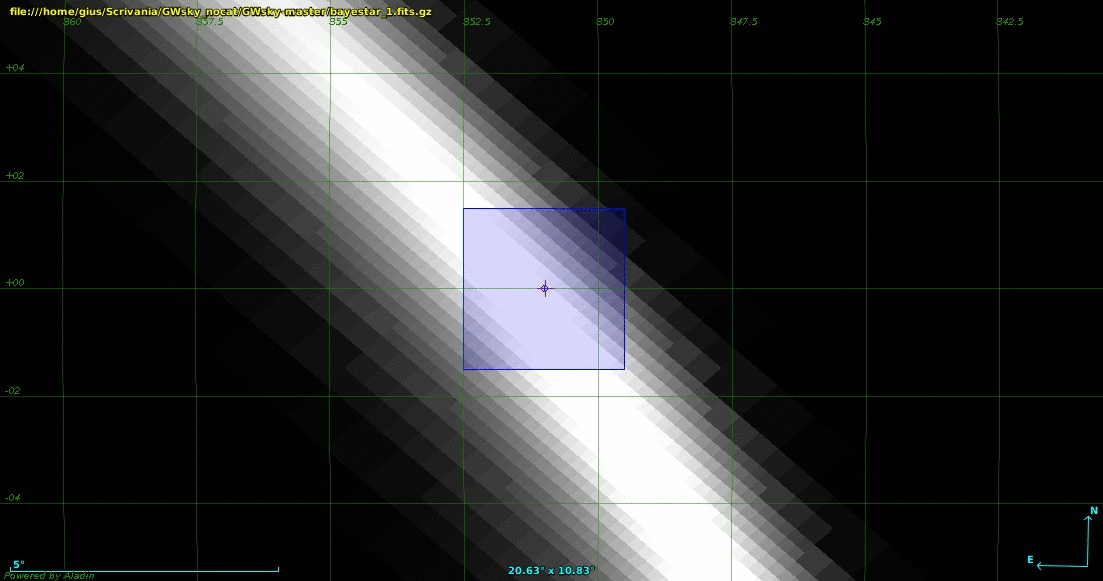Short Turorial to localize events and manage a FoV sequence with the GWsky_pointing.txt
GWsky presentation here
GWsky is an interactive Python script to generate a sequence of pointings given a specific Field of View (FoV). The script aims to split the large GW sky localization into several independent areas.
It defines a sequence of FoVs from a fixed position over the sky, e.g., starting from the highest probability pixel. The results are displayed in Aladin Sky Atlas using the SAMPIntegratedClient class.
The Aladin v10.076 is recommended http://aladin.u-strasbg.fr/java/Aladin.jar Run it typing
java -Xmx2g -jar Aladin.jar
The airmass and the integrated probability are provided in real time. Moreover, specifying the ID of a catalog, a query to the Vizier database is sent and the relative items are listed in each FoV.
The FoVs are evenly spaced assuming that the shortest angular distance between two points on the celestial sphere is measured along a great circle that passes through both of them:
cosθ=sinδ1sinδ2+cosδ1cosδ2cos(α1−α2),
where (α1,δ1) and (α2,δ2) are the right ascensions and declinations of the two points on the sky.
Cardinal directions are allowed and the FoVs can be overlaid or separated from the default position following the user's selection. A GUI guides the user through the sequential steps https://vimeo.com/182427599
Requirements
GWsky runs under Python 3.x.x
astropy, numpy, matplotlib, healpy, scipy, astroquery, mocpy
Running it
>>> from GWsky import gwsky
Building from source
The development version can be obtained and installed from github:
$ git clone https://github.com/ggreco77/GWsky
$ cd GWsky
$ (sudo) python3 setup.py install
 M. Branchesi, G. Greco and G. Stratta are supported by the Italian Ministry of Education, University
and Research via grant FIRB 2012- RBFR12PM1F.
M. Branchesi, G. Greco and G. Stratta are supported by the Italian Ministry of Education, University
and Research via grant FIRB 2012- RBFR12PM1F.
